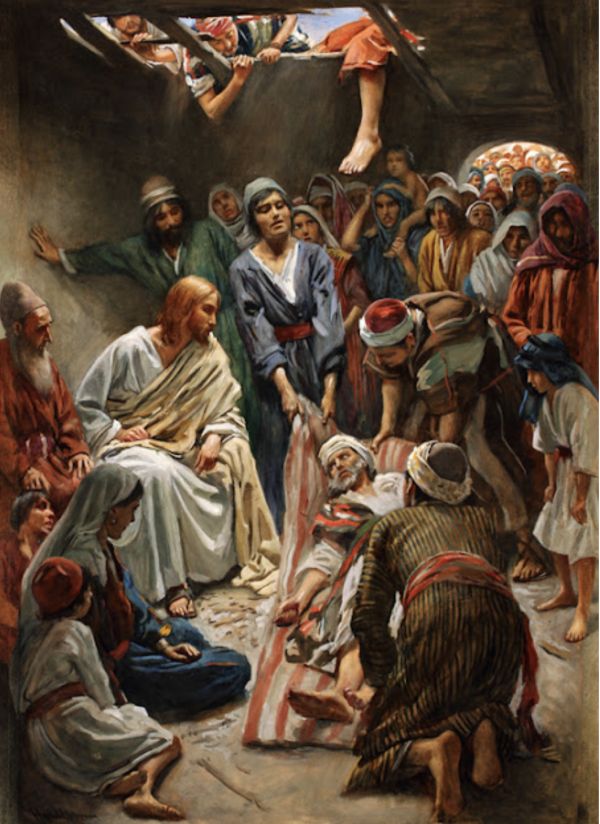Religiosity and Faith: unusual crossroads of Tenderness
(Lk 5:17-26)
Jesus teaches and heals. He does not announce the Sovereign of religions, but a Father - attractive figure, who neither threatens nor punishes, but welcomes, dialogues, forgives and makes us grow.
The opposite of what the official guides conveyed, linked to the idea of an archaic, suspicious and prejudiced deity, which discriminated between friends and enemies.
God expresses himself not in oppressive forms, but in the way of the family and interhuman Covenant: He doesn’t enjoy the perfect, sterilized and pure, but offers to all his Love without requirements.
In fact, imperfection is not an expression of sin, and in any case sin is not an absolute force (v.21).
The Lord’s co-workers bring to Him all the paralytics, that is, those who are stuck and continue to stay in their stretchers - where perhaps those of the common opinion have laid them down.
They are people who in life do not seem to proceed either in the direction of the Eternal, nor go to others. They cannot even meet themselves.
Only personal contact with Christ can untie these vegetating corpses from their depressing pond.
God’s friends do everything to lead the needy to the Master, but sometimes they find themselves in front of a waterproof crowd, which does not allow a direct personal relationship (vv.18-19).
What to do? A dismantling action. Work pleasing to the Father - and which the Son evaluates as an expression of Faith (v.20)!
Faith that thinks and believes «an open world that makes room for everyone» [FT n.155].
The "synagogues" unbearable, on the contrary, promote a “binary division” (FT n.156) that attempts to ‘classify’.
In short, there are refractory clubs that claim to appropriate poor Jesus. Therefore their "headquarters" must be ‘uncovered and opened’ wide (v.19) - with extreme decision, in order not to make life pale.
We note that not the right stages, but only the unusual initiative overcomes the pond of the structures taken hostage - where you should just line up, wait for the turn, settle satisfied... and doze off.
The impetus for the demands of full, insightful life can and must overcome every sense of false collective compactness.
No sign of joy from the authorities (v.21) who only draw negative diagnoses - instead people are enthusiastic (v.26).
Lk’s passage makes us understand that the problem of the ‘paralytic’ is not his discomfort, the sense of oppression, the apparent misfortune.
These are not the ruptures in the relationship with life and with God.
On the contrary, the impediment becomes a paradoxical reason for seeking "therapy", and research of vis-à-vis.
The eccentric configurations - considered miserable - in fact contain secret doors, immense virtues, and the cure itself.
Even, they drive towards a new existence. They urge us, and "oblige" us to a personal relationship with our Lord. Almost looking for the Resemblance.
In short, we are called to choose in a very unusual way, compared to clichés.
And according to the Gospels the initiative of personal Faith is the decisive fork in the way - road of the impelling and universal desire to live completely.
Unusual crossroads of the Tenderness and Faith.
[Monday 2nd wk. in Advent, December 9, 2024]












